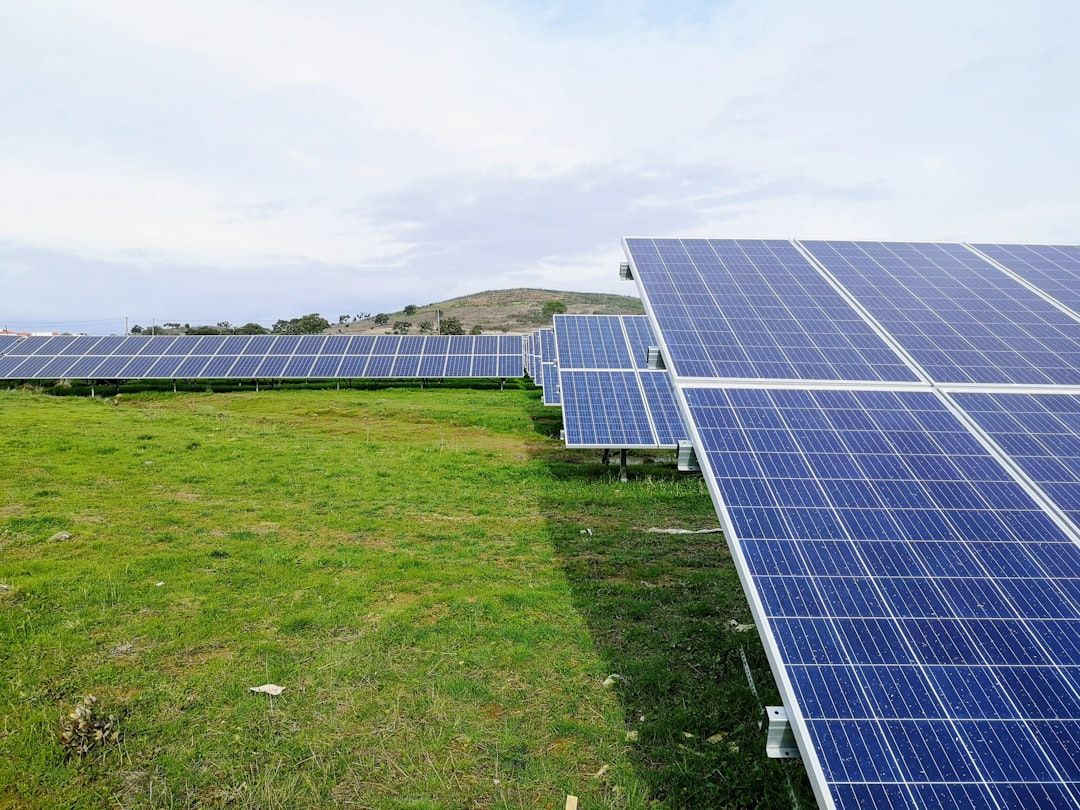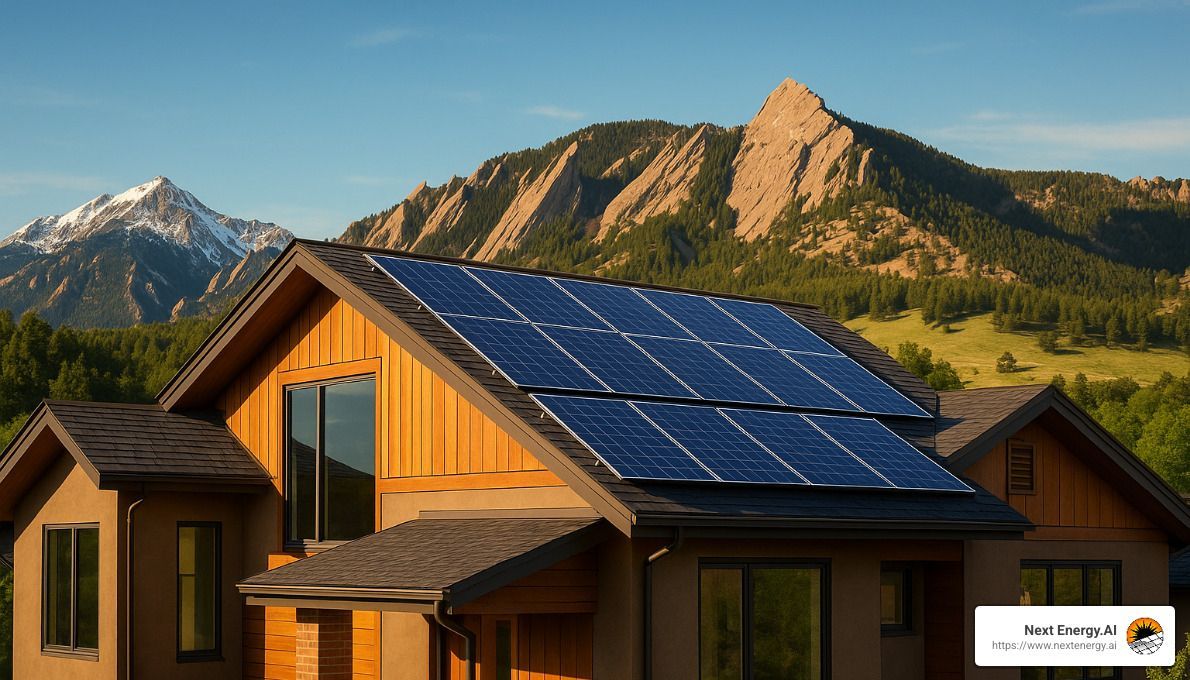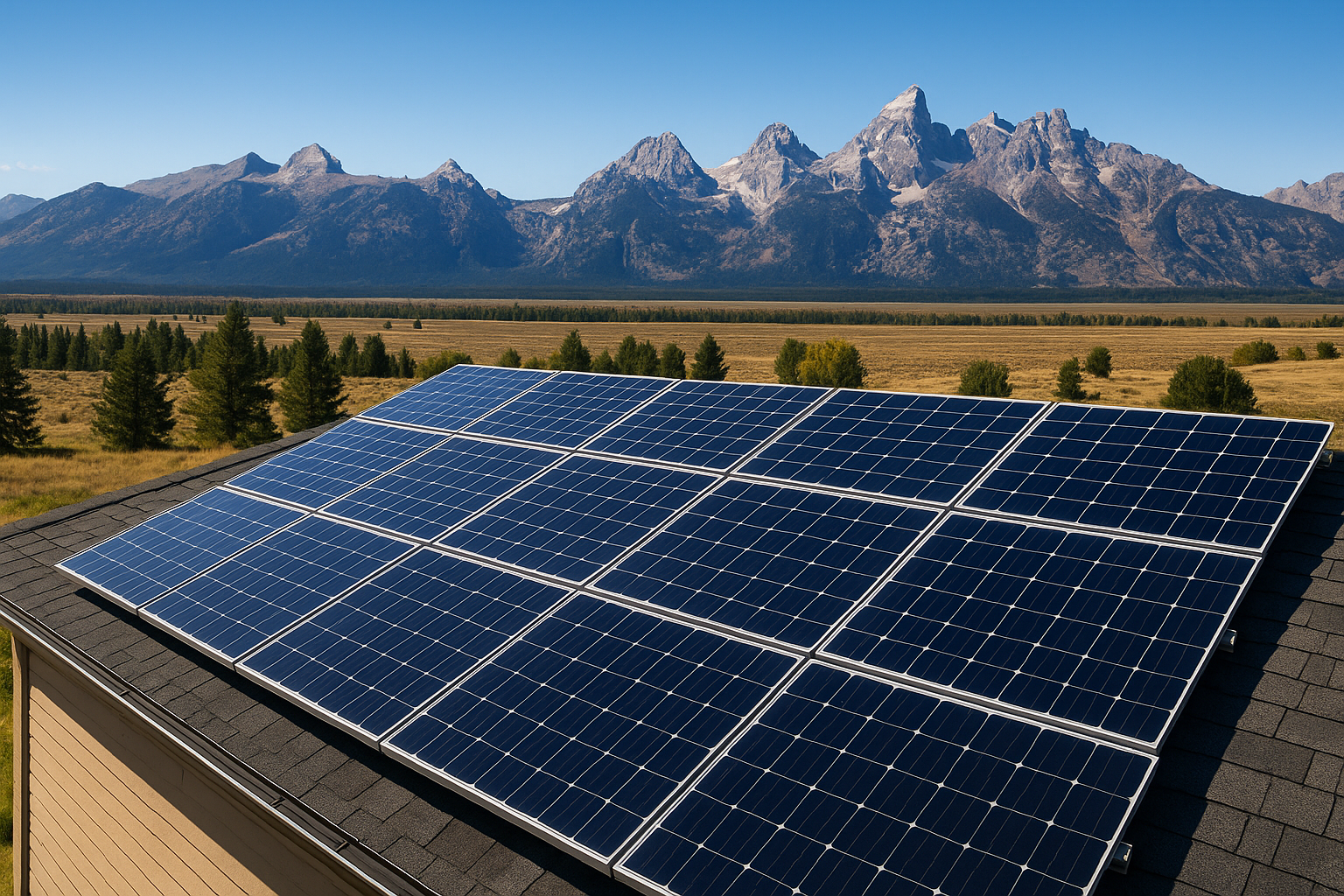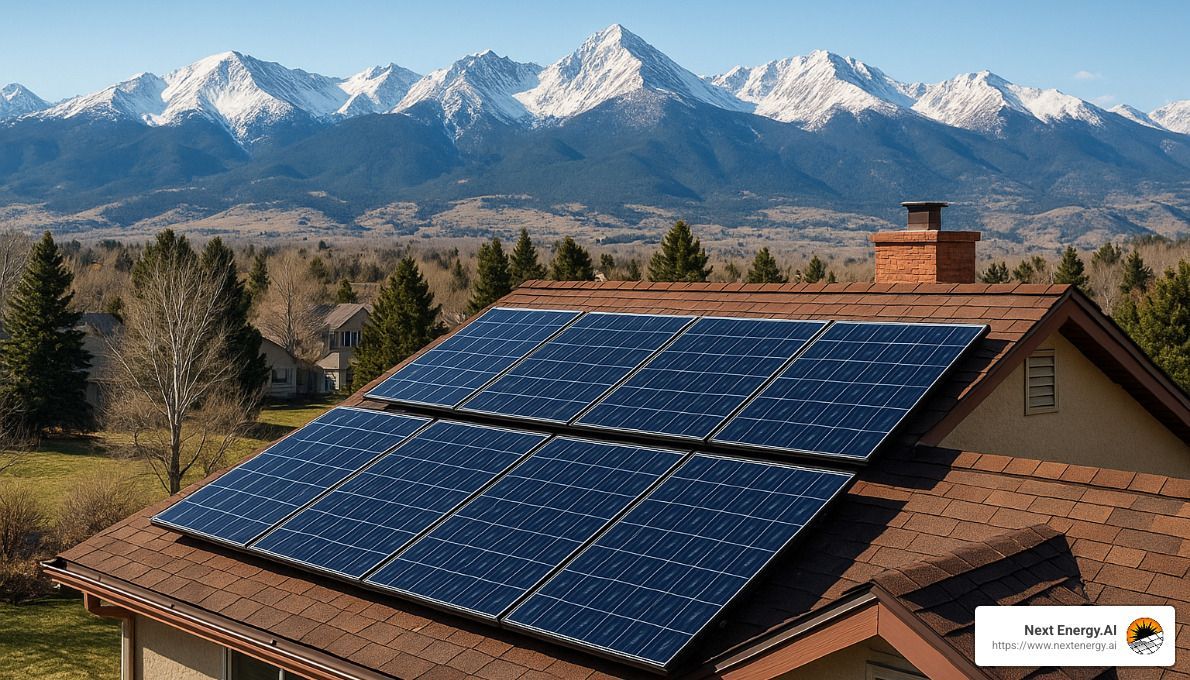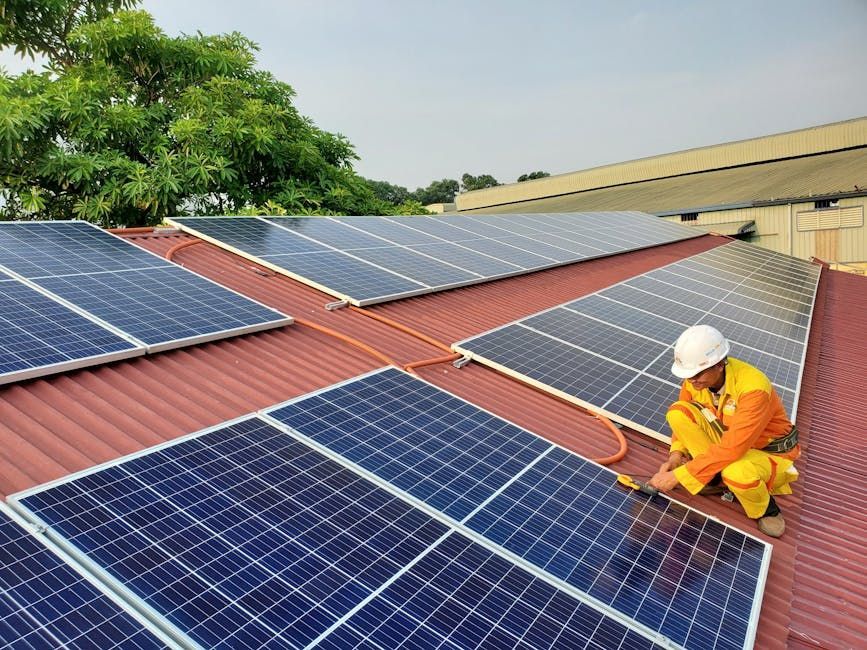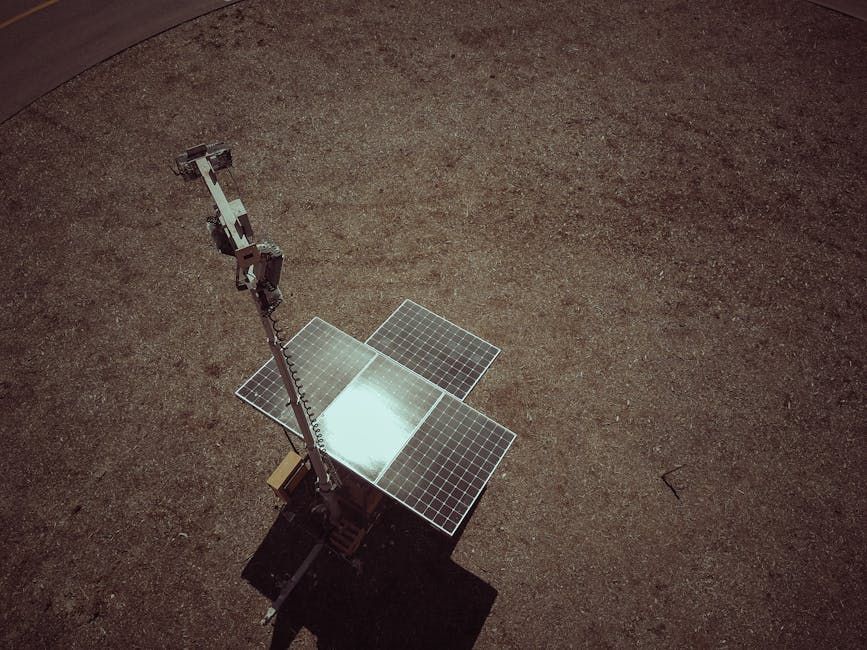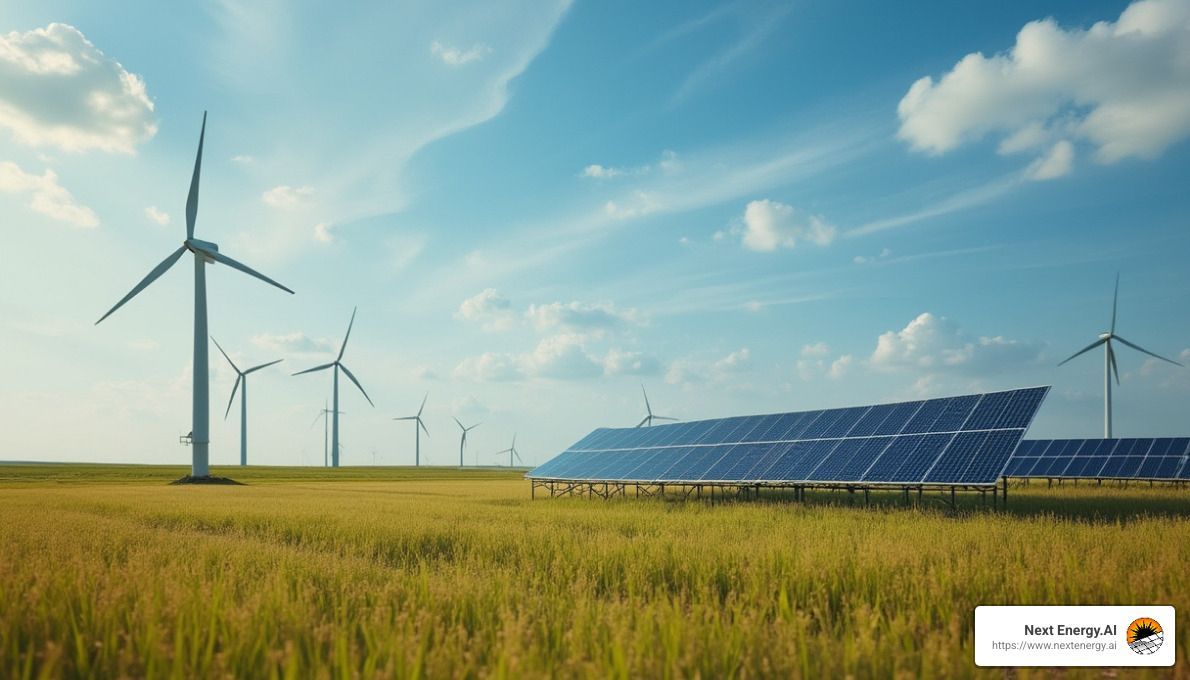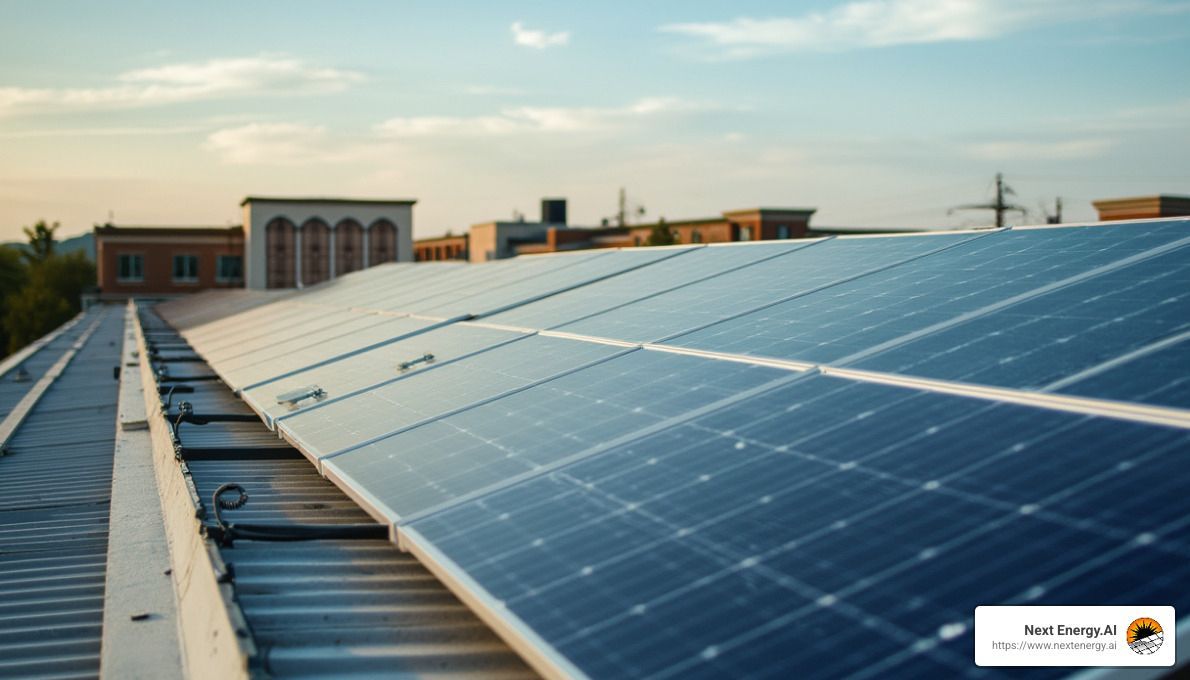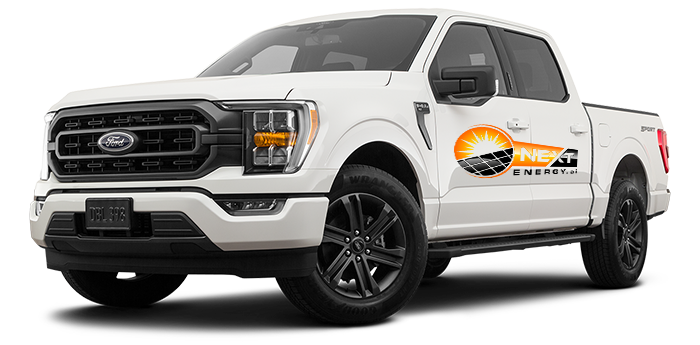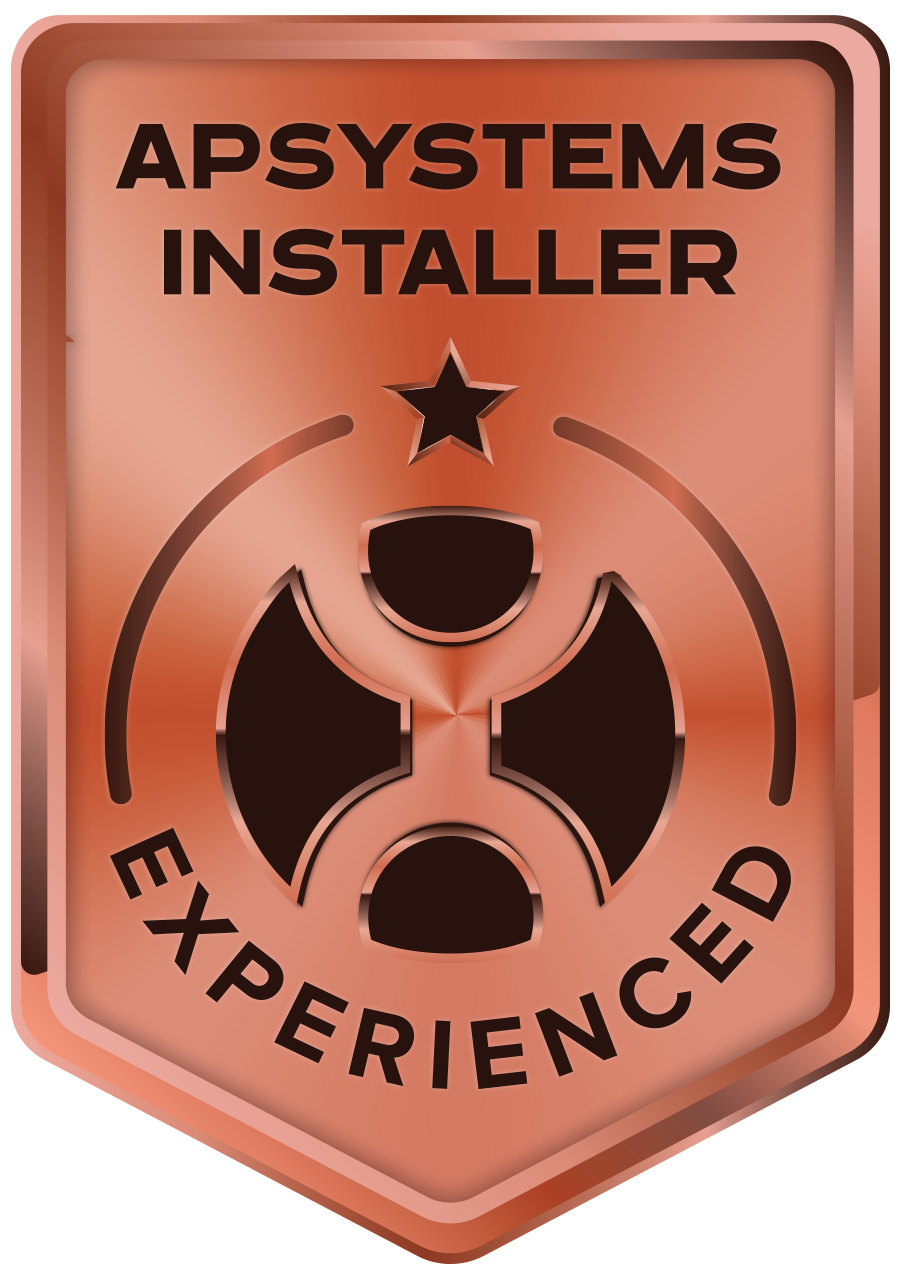Solar Power Unplugged: Maximizing Efficiency with Battery Storage
Battery storage for solar power is a game-changer for modern homeowners. It allows you to save excess solar energy for later use, increasing independence from the grid and potentially lowering electricity bills. By combining solar panels with battery storage, you can:
- Balance electricity loads by storing surplus energy for use when the sun isn't shining.
- Ensure resilience during power outages by having a reliable backup system.
- Firm solar generation to maintain a consistent energy supply despite weather fluctuations.
Battery storage makes solar energy more efficient and reliable, allowing you to make the most of your renewable resources.
I’m Spencer Gordon, CEO of Next Energy.AI, with a background in photovoltaics and renewable energy. My journey in the solar field is rooted in providing efficient solutions that optimize battery storage for solar power, enhancing sustainability and cost-effectiveness for homeowners.
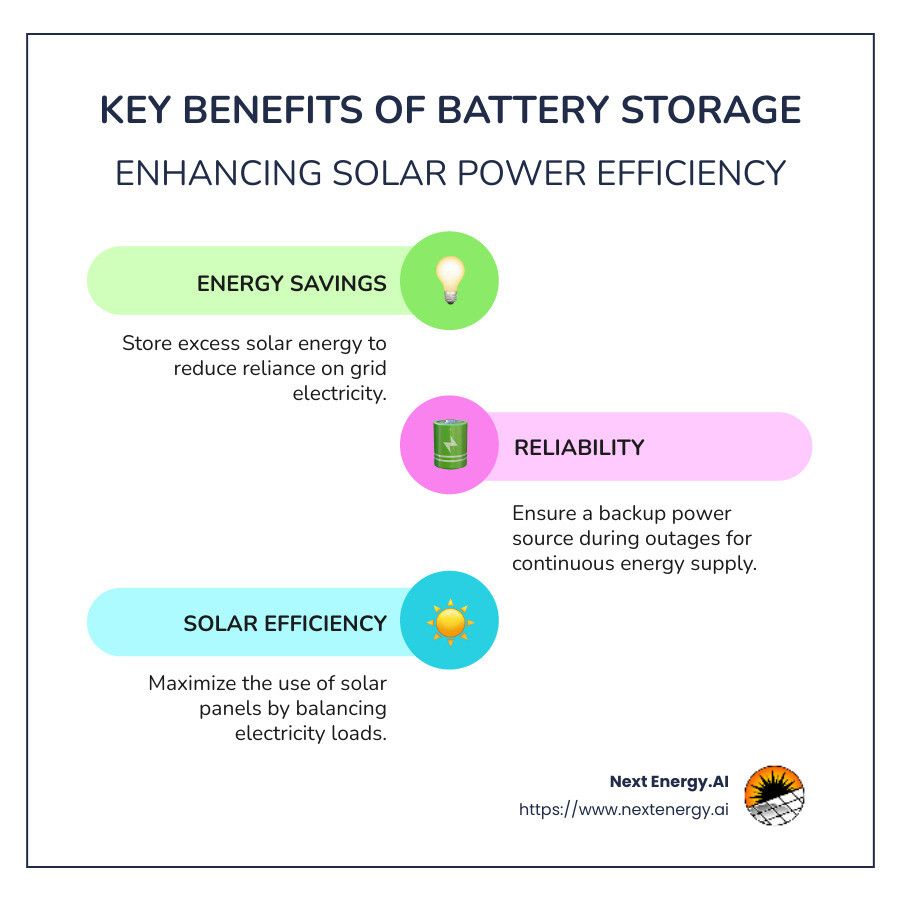
Understanding Battery Storage for Solar Power
Battery storage for solar power is like having a backup plan for your home's energy needs. It’s all about storing the extra energy your solar panels generate during sunny days, so you can use it when you need it most—like at night or during a power outage.
Lithium-Ion Batteries
Lithium-ion batteries are the rock stars of solar energy storage. Why? They have a high energy density, meaning they can store a lot of energy without taking up much space. Plus, they last a long time, which is great because no one wants to replace their battery every few years.
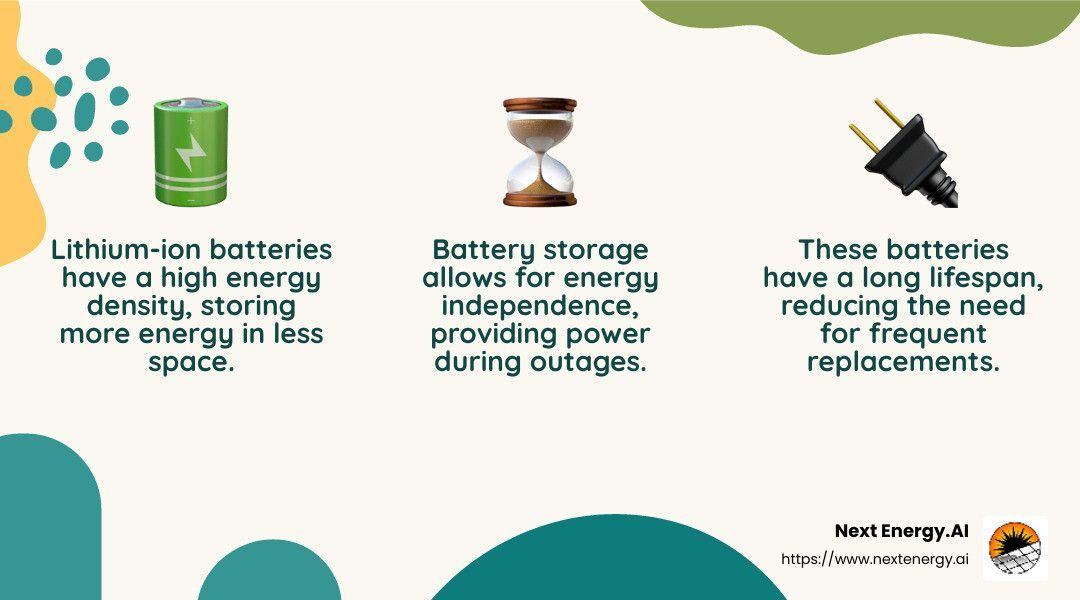
These batteries are ideal for homeowners looking for reliability and efficiency. If you want to maximize your solar power usage and reduce your dependency on the grid, lithium-ion is the way to go.
Energy Independence
Imagine not having to worry about power outages or high electricity bills. With battery storage for solar power, you can achieve a level of energy independence that lets you take control of your home’s electricity.
When your solar panels produce more energy than you use, the excess is stored in your battery. Later, when the sun isn’t shining, you can tap into this stored energy instead of relying on the grid. This means you’re less affected by utility rate hikes and power outages.
Solar Backup
Having a solar backup system is like having a safety net. If there’s a power outage, your stored solar energy kicks in to keep essential appliances running.
A typical setup might allow you to power your refrigerator, lights, and maybe even your internet. So, whether it’s a short disruption or a longer outage, your home can stay powered and comfortable.
Battery storage for solar power is a smart choice for anyone looking to improve their home’s energy resilience and efficiency. It's about making the most of the sun's energy and ensuring you have power when you need it most.
Types of Batteries for Solar Energy Storage
Choosing the right battery for your solar system is crucial. Let's break down the main types you might consider.
Lithium-Ion Batteries
Lithium-ion batteries are the go-to choice for many solar enthusiasts. They have a high energy density, which means they can store a lot of energy in a small space. This is perfect if you want to maximize storage without taking up too much room.
One of the standout features of lithium-ion batteries is their long lifespan. They typically last between 10 to 15 years, which means less frequent replacements and more savings in the long run. These batteries are also low maintenance, making them ideal for those who prefer a set-it-and-forget-it approach.
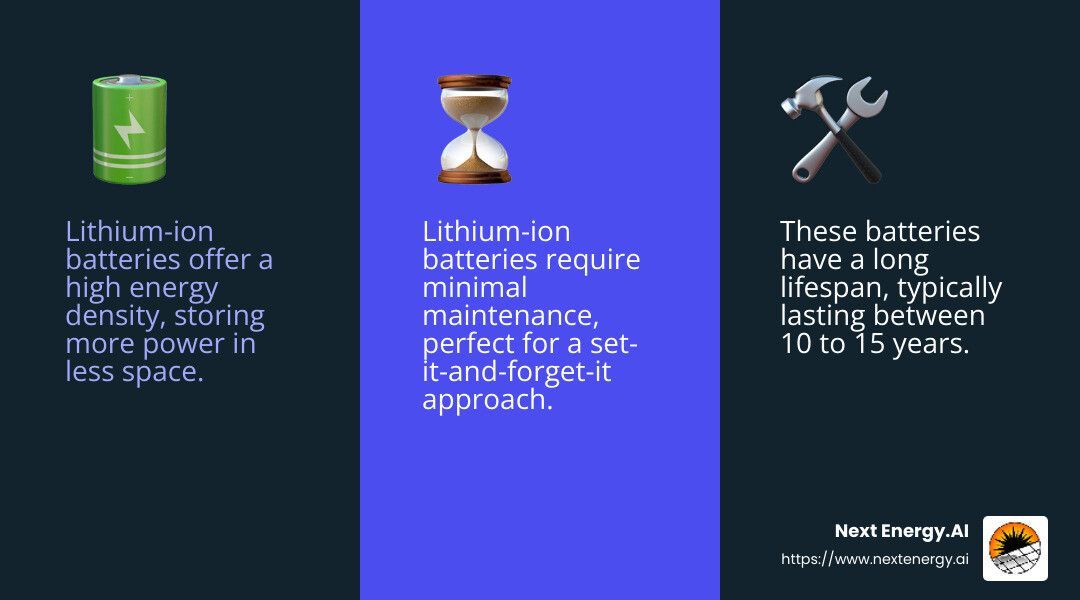
Lead-Acid Batteries
Lead-acid batteries have been around for a while and are known for being cost-effective. They are a popular choice for smaller solar systems or for those on a budget. However, they do have some drawbacks.
These batteries require regular maintenance to ensure they function properly. This includes checking water levels and ensuring proper ventilation. Despite these requirements, they remain a viable option for those willing to put in a little extra work for a lower initial cost.
Thermal Energy Storage
Thermal energy storage is a different beast altogether. Instead of storing electrical energy, it stores heat energy. This method often uses materials like molten salt to capture and store heat, which can later be converted into electricity.
Thermal storage is typically used in larger solar installations, such as concentrated solar power (CSP) plants. While not common in residential settings, it's an exciting area of development for large-scale energy storage solutions.
Each battery type has its pros and cons, and the best choice depends on your specific needs, budget, and willingness to maintain the system. Whether you're looking for longevity, cost savings, or cutting-edge technology, there's an option out there for you.
Benefits of Integrating Battery Storage with Solar Power
Using the sun's energy is just the beginning. When you add battery storage for solar power, you open up a host of benefits that can transform how you use electricity at home.
Energy Savings
One of the biggest perks of pairing solar panels with battery storage is the potential for significant energy savings. By storing excess solar energy during the day, you can use it when electricity rates are highest—typically in the evening. This strategy, known as "time-of-use arbitrage," can lead to substantial reductions in your utility bills.
In California, for instance, homeowners with battery systems can save even more under the NEM 3.0 policy. By storing power when rates are low and using or selling it when rates are high, they maximize their savings.
Grid Independence
Grid independence is another compelling reason to integrate battery storage with your solar setup. With a battery system, you can store surplus energy instead of selling it back to the grid at low buyback rates. This means you rely less on your utility company and more on your own generated power.
For those living in areas with unreliable power grids or frequent outages, this independence offers peace of mind. Your home can continue to function seamlessly, even when the grid goes down, by drawing power from your stored energy.
Peak Demand Management
Managing peak demand is crucial for both your wallet and the environment. Utilities charge more during peak demand times, typically when everyone is using electricity at once. With battery storage, you can draw from your own reserves instead of the grid, reducing your demand charges and helping to balance the overall load on the grid.
For solar operators in Texas, where peak prices can skyrocket during heat waves, using battery storage to manage these demands is not just cost-effective—it's essential. By charging batteries when prices are low and discharging when they're high, operators can steer market price fluctuations effectively.
Integrating battery storage for solar power is more than just a backup plan; it's a smart strategy for saving money, gaining energy independence, and managing peak demand. These benefits make battery storage an invaluable addition to any solar power system.
Next, let's explore how to choose the right battery storage system for your needs.
How to Choose the Right Battery Storage System
Selecting the right battery storage for solar power involves a few key considerations. Let's break it down into three main areas: energy needs, system efficiency, and installation considerations.
Energy Needs
First, understand your energy needs. This means knowing how much electricity your household uses and when you use it. Consider these questions:
- How much energy do you consume daily? Check your utility bills for average usage.
- Do you want partial or whole-home backup? Partial backup typically covers essentials like the fridge and lights, while whole-home backup includes larger appliances.
- What are your peak usage times? Identify when your energy demand is highest to determine battery capacity.
Understanding your energy needs will help you decide how many batteries you might require and what capacity is necessary.
System Efficiency
System efficiency is crucial for maximizing your solar investment. Here’s what to consider:
- Round-trip efficiency: This measures how much energy is stored and retrieved without loss. Look for batteries with high round-trip efficiency (around 90% is ideal).
- Depth of discharge: This tells you how much of the battery's capacity can be used. A higher depth of discharge means more usable energy.
- Battery lifespan: Consider how long the battery will last and how it degrades over time. Lithium-ion batteries are popular for their long lifespan and low maintenance.
Efficient systems mean more savings and a better return on your solar investment.
Installation Considerations
Finally, think about installation:
- Space and location: Ensure you have enough space for the battery system. Modular designs can save space and allow for future expansions.
- Local regulations and incentives: Check for any local permits needed and explore incentives that might reduce costs.
- Professional installation: Choose a reputable installer to ensure proper setup and integration with your solar system.
A well-planned installation ensures safety and maximizes the effectiveness of your battery storage system.
Choosing the right battery storage system involves understanding your energy needs, focusing on system efficiency, and planning for a smooth installation. With these factors in mind, you can make an informed decision that improves your solar power experience.
Next, let's address some frequently asked questions about battery storage for solar power.
Frequently Asked Questions about Battery Storage for Solar Power
How much battery storage do I need for solar?
Determining the right amount of battery storage for solar power depends on several factors.
- Energy Consumption: Start by understanding your household's energy usage. Look at your utility bills to find your average daily consumption. This will give you a baseline for the battery capacity you need.
- Solar System Size: The size of your solar panel system also plays a role. A larger system generates more electricity, which might require more storage to capture the excess energy.
- Desired Backup Level: Decide if you want a partial or whole-home backup. Partial backup systems typically cover essential appliances like your refrigerator and lights, which might need around 10-20 kWh of storage. Whole-home backup systems, which can power larger appliances like air conditioners, might require 20-40+ kWh.
Can solar batteries power my entire home?
Yes, solar batteries can power your entire home, but it depends on the storage capacity and your energy needs.
- Partial Backup: A battery storage system with 10-20 kWh can provide partial backup. This means essential appliances and electronics will keep running during an outage.
- Whole-Home Backup: For a whole-home backup, you'll need a larger storage system, typically in the range of 20-40 kWh or more. This setup can support all your household needs, including energy-intensive appliances.
Choosing between partial and whole-home backup depends on your priorities and budget.
How long do solar batteries last?
The lifespan of solar batteries varies, generally ranging from 5 to 15 years.
- Battery Lifespan: Lithium-ion batteries are favored for their longer lifespan and efficiency, often lasting up to 15 years with proper care. Some can even reach 20 years.
- Maintenance: Regular maintenance can extend battery life. However, lithium-ion batteries typically require less maintenance compared to lead-acid batteries, which may need regular checks and water refills.
The longevity of your battery system will impact long-term savings and performance, making it a crucial consideration when investing in solar power storage.
Understanding these aspects will help you make informed decisions about integrating battery storage with your solar power system. Now, let’s explore how Next Energy.AI can assist in optimizing your solar energy solutions.
Conclusion
At Next Energy.AI, we're dedicated to changing the way you use solar power. Our AI-improved solar solutions not only make your energy systems smarter but also more efficient. By integrating battery storage for solar power with advanced AI, we help you optimize your energy usage and maximize savings.
AI-Improved Solar Solutions
Our cutting-edge technology leverages artificial intelligence to monitor and manage your solar energy system. This means your solar panels can adapt to your energy needs in real-time, ensuring you get the most out of every ray of sunlight. Whether it's adjusting energy flow during peak demand or managing battery storage, our AI systems are designed to improve performance and efficiency.
Energy Optimization for a Sustainable Future
With our solutions, you can achieve greater energy independence and reduce reliance on the grid. Our systems are designed to store excess solar energy during the day, making it available when you need it most—like during nighttime or power outages. This not only provides peace of mind but also contributes to a more sustainable future by reducing your carbon footprint.
Partner with Us
Join us on a journey towards smarter, more efficient solar energy. Our team in Loveland, Colorado, is ready to support you every step of the way, from installation to maintenance. We are proud to serve Northern Colorado and Southern Wyoming, ensuring that communities can benefit from clean, renewable energy.
For more information on how Next Energy.AI can transform your solar energy experience, visit our commercial solar energy storage page. Let’s create a brighter, more sustainable future together.
